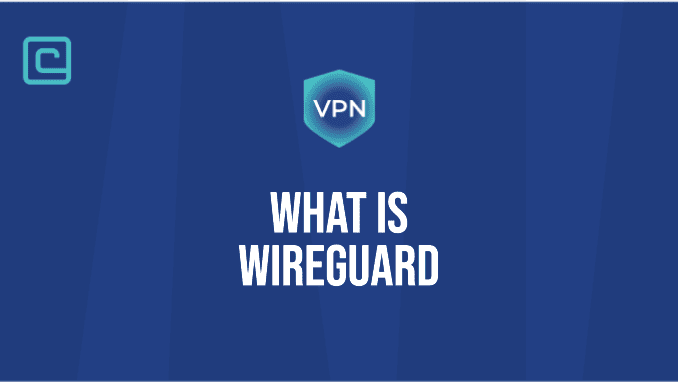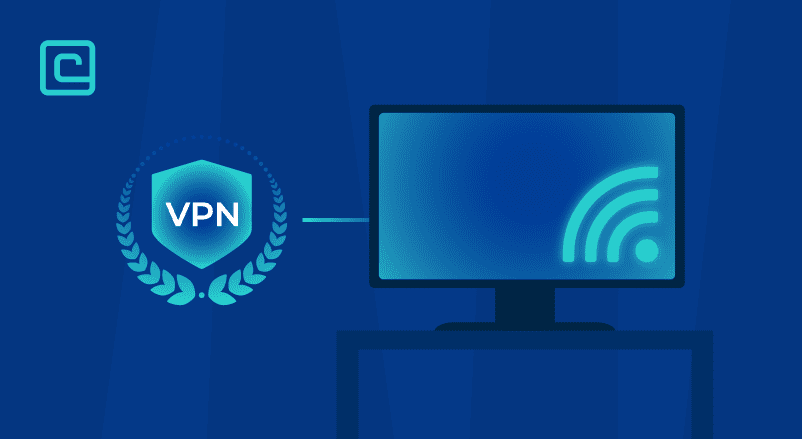What is WireGuard VPN Protocol: Should You Use it in 2024?

In the last decade, the WireGuard VPN protocol has emerged as a modern and highly efficient solution. Its streamlined design and focus on simplicity have garnered considerable attention, with many security researchers dubbing it the best VPN protocol.
Unlike traditional VPN protocols, which can be complex and resource-intensive, WireGuard boasts fewer lines of code and prioritizes simplicity, efficiency, and strong encryption. With its lightweight nature, it is well-suited for a wide range of use cases, from individual consumers to enterprise environments.
But should you consider using WireGuard in 2024? In this comprehensive guide, we will delve into the intricacies of the WireGuard protocol, its key features, and the potential benefits it offers. Read on to learn the insights necessary to evaluate WireGuard’s suitability as a protocol for 2024 and the years ahead.
Check out VPNs with WireGuard protocol.
WireGuard VPN Protocol Briefly Explained
WireGuard is a modern and lightweight open-source VPN protocol designed to provide secure and efficient communication over the Internet. It’s light and only supports UDP, which has no handshake protocols. It offers perfect forward secrecy for added security and utilizes an innovative concept called cryptokey routing through short public keys.
How WireGuard Works – Cryptography and Encryption
WireGuard utilizes modern cryptography techniques to create a secure encrypted tunnel. At the core of WireGuard’s cryptography is the Noise protocol framework, which facilitates secure key exchange between the client and server.
During the initial handshake, the client and server exchange messages to establish a shared session key without revealing their long-term static keys. This process ensures a secure connection is established.
Once the key exchange is completed, WireGuard employs symmetric encryption for data transmission. The protocol uses the ChaCha20 stream cipher in conjunction with the Poly1305 authenticated encryption algorithm. ChaCha20 provides fast and secure encryption, while Poly1305 verifies the integrity of the encrypted data.
Each packet is encrypted using a unique packet key derived from the session key established during the key exchange. This approach ensures forward secrecy, meaning that even if a packet key is compromised, it cannot be used to decrypt past or future packets.
To protect against replay attacks, WireGuard incorporates replay protection mechanisms. Each transmitted packet includes a unique nonce, preventing malicious individuals from replaying captured packets. The use of nonces, along with the unique packet key for each packet, ensures robust protection against replay attacks.
WireGuard also employs authentication and integrity checks. The Poly1305 algorithm is used to generate a message authentication code (MAC) for each encrypted packet. This MAC address is computed based on the encrypted data and shared session keys.
Upon receiving a packet, the recipient can recalculate the MAC using the shared session key and compare it to the received MAC. If they match, the packet is deemed authentic and has not been tampered with.
By utilizing these cryptographic techniques, WireGuard ensures the confidentiality, integrity, and authenticity of data transmitted over VPN connections. Its use of modern algorithms, combined with secure key exchange and replay protection, contributes to its strong security foundation.
Test Your VPN Knowledge – Take A Quiz!
Pros & Cons of The WireGuard VPN Protocol
The WireGuard project is certainly revolutionizing the commercial VPN scene. But, like any other VPN software or protocol, this state-of-the-art protocol comes with its pros and cons. Here are some of the most notable advantages and disadvantages of the WireGuard protocol:
Pros of WireGuard
- Optimized Performance — WireGuard is the best protocol in terms of performance across all major platforms. After comparing it to older protocols like OpenVPN and IPSec/IKEv2 using the same hardware, WireGuard performed the best. It was particularly advantageous over OpenVPN on embedded devices like mobile phones. Moreover, as it lives within the Linux kernel, it is faster than other userspace services.
- Great Security — WireGuard is a fantastic all-around protocol that doesn’t compromise security for the sake of performance. Its cryptographic primitives have secure defaults, and the protocol itself is easy to audit due to its size.
- Flexible and Easy to Deploy — With only 4,000 lines of code and fewer configuration options than other protocols, WireGuard is very easy to deploy. This trait also makes it easier for consumer VPNs to implement WireGuard in their services without much effort.
- Easy-to-Install Apps — WireGuard isn’t only convenient for providers and security experts. It also provides a great user experience for casual VPN users. Setting up WireGuard is straightforward with its easy-to-install clients.
Cons of WireGuard
- Can’t Combat Deep Packet Inspection — If you want a protocol that counters deep packet inspection, WireGuard is not the right choice. WireGuard’s architecture does not focus on this, as every WireGuard connection emphasizes simple implementation.
- No Dynamic IP Assignment — WireGuard does not provide native support for dynamic IP address assignment. By default, WireGuard requires devices to have static IP addresses for identification and configuration.
Is WireGuard Safe?
The WireGuard protocol is generally considered safe and secure. It has a smaller codebase compared to other VPN protocols, which reduces the potential attack surface and makes it less prone to security vulnerabilities. The simplicity of its design also contributes to its security, as it decreases the likelihood of misconfigurations or implementation errors.
While it is a relatively new protocol compared to other staple protocols, it has been around since 2015. It’s far from a passing fad and is only set for wider adoption. After all, Linus Torvalds, the creator of Linux, deemed it safe enough to integrate WireGuard into the main Linux kernel in 2020.
What Are The Best Uses for WireGuard Protocol?
Due to its unique set of features and standout pros and cons, the WireGuard VPN protocol is widely deployable for a range of uses. Here are some online activities best suited for Wireguard’s performance traits:
- Gaming — WireGuard’s low latency and efficient performance make it suitable for online gaming. It can help reduce lag and provide a more stable connection, improving your gaming experience and ensuring secure gameplay.
- Streaming and Content Access — If you want to access geo-restricted content or bypass censorship, WireGuard can be used to establish a VPN connection to a server in a different region. This allows you to access streaming platforms, websites, or services that may be restricted in your location.
- Privacy Protection — WireGuard can help safeguard your online privacy, secure VoIP and messaging, and protect your information from interception when using public networks.
- Torrenting — While Wireguard might not be the first protocol that comes to mind when talking about torrenting, it’s still one of the best VPN connection protocols for P2P.
Is WireGuard Better Than Other VPN Protocols?
WireGuard is considered by many to be an innovative and promising VPN protocol, but whether it is “better” than other options depends on specific factors and individual needs. To see how it fares compared to other VPN protocols, let’s take this topic a bit further:
WireGuard vs. OpenVPN
In terms of performance, WireGuard generally outperforms OpenVPN due to its lightweight design and efficient cryptographic algorithms. WireGuard’s simplicity allows for easier implementation and maintenance.
WireGuard uses only 4,000 lines of code, while OpenVPN has around 70,000 lines of code. This significant difference puts WireGuard at a noticeable advantage, as this design means that it’s less resource-intensive, so it impacts battery life less than OpenVPN. This brings another advantage, in that WireGuard requires far fewer configuration options for those setting up their own VPN servers.
Both OpenVPN and WireGuard are open-source and provide great transparency. When it comes to security, both WireGuard and OpenVPN provide reliable protection for VPN connections.
OpenVPN was created in 2001. It has a longer track record and thorough security auditing, which contribute to its reputation as a secure protocol. WireGuard, despite a new VPN protocol compared to OpenVPN, has been designed with modern security principles in mind and has undergone analysis to ensure its security.
WireGuard vs. IPSec/IKEv2
WireGuard is generally a better-performing protocol than IPSec/IKEv2. It’s faster and more reliable, especially on unstable networks. This is because WireGuard uses faster cryptographic primitives and lives inside the Linux kernel (on Linux desktops and servers).
However, while WireGuard is great for conserving battery, IPSec/IKEv2 is arguably even better in this regard. In most cases, it will use even less battery than WireGuard.
Another advantage that IPSec/IKEv2 has over WireGuard is that it’s available with more VPN providers. It’s one of the most widespread VPN protocols and is supported on most devices.
WireGuard vs. Other Protocols – Direct Comparison of Connection Speeds
With all the pros, cons, and comparisons aside, there’s one more important metric to consider—the numbers. When put to the test, what kind of connection speeds can you expect from the most popular protocols? Moreover, how does WireGuard compare to other protocols like OpenVPN or IPSec/IKEv2 or L2TP? Here’s a detailed table illustrating how the tested protocols performed:
| VPN Protocol | Avg. Speed Loss (Compared to Regular Connection) | Avg. Download Speed (On PC) | Avg. Download Speed (On Router) |
|---|---|---|---|
| WireGuard | ~19% | ~65 Mbps | ~55 Mbps |
| OpenVPN UDP | ~21% | ~ 50 Mbps | ~ 40 Mbps |
| OpenVPN TCP | ~48% | ~30 Mbps | ~30 Mbps |
| IPSec/IKEv2 | ~20% | ~75 Mbps | ~ 50 Mbps |
How To Use WireGuard – A Simple Step-by-Step Guide
With many VPNs that support WireGuard, this VPN protocol is set by default. But, if your client uses a different protocol, you can conveniently change it to WireGuard. Here’s how to tell your VPN to use WireGuard using Surfshark as an example:
- Download the appropriate app for your device and log in.
- Navigate to the settings tab of the client.
- Click on the “VPN settings” tab.
- Go to the “protocol” section.
- Select WireGuard from the list of available encryption protocols.
- Connect to a server of your choice and enjoy using WireGuard’s perks!
Which VPNs Support WireGuard?
WireGuard has long been available in some of the best providers in the VPN industry. Here are just some of the biggest VPN service providers that support WireGuard connections:
- NordVPN — In this expert’s opinion, NordVPN is the best VPN service in the business. The reason why it’s the last VPN provider on this bullet list is that it doesn’t actually offer WireGuard. It was the first major service to adopt WireGuard, in the form of the NordLynx protocol. This is an in-house protocol built around WireGuard VPN technology.
- Surfshark — WireGuard is the default protocol on all Surfshark platforms. Besides WireGuard, it also supports several other existing VPN protocols, along with state-of-the-art encryption, dynamic IP addresses, and many other security features.
- Atlas VPN — This affordable VPN provider supports the WireGuard protocol, along with a set of useful advanced features. Like Surfshark, it also offers unlimited simultaneous connections.
- Private Internet Access — Known as the VPN service with the biggest VPN server network in the business, PIA is a fast and capable provider with great features. It’s very customizable and particularly favorable for advanced VPN users.
WireGuard FAQs
Which Operating Systems work with WireGuard?
WireGuard is designed to be versatile and is supported on various operating systems. WireGuard VPN protocol is available on Windows, Mac, Android, iOS, Linux, and even some routers.
Can WireGuard be hacked?
While no technology is completely immune to hacking, WireGuard has been built upon modern cryptographic principles, with a strong emphasis on security. It would take someone centuries to see any results when trying to hack WireGuard.
What port does WireGuard use?
The default port used by WireGuard is 51820. However, the port number can be customized during the configuration. Admins or VPN providers can use a different port to accommodate configurations or avoid conflicts with other services running on the default port.
Is WireGuard better than OpenVPN?
WireGuard’s performance, simplicity, and efficiency make it a better option for those seeking a fast and straightforward VPN solution. Nevertheless, OpenVPN’s widespread compatibility and extensive community support still make it a solid pick for some users.
Is WireGuard multithreaded?
Yes, the WireGuard VPN protocol supports multithreading. This means it can utilize several CPU cores for better performance, as this feature enables it to process data more quickly.
Is WireGuard safe for torrenting?
Yes, WireGuard itself is considered safe for torrenting. It uses modern cryptographic algorithms to provide secure and private connections. However, it’s vital to note that the safety of torrenting also depends on the overall setup and practices you employ.
How to configure WireGuard clients?
WireGuard has a very nifty feature that allows users to create a new WireGuard encryption tunnel by scanning a QR code with their mobile devices. This helps you avoid having to manually copy and paste credentials.
Cybersecurity and VPN researcher

